During the arduous, fierce but heroic resistance war against the US, the image of mothers with noble benevolence, deep love for their homeland and country... was clearly and successfully portrayed by poets and writers in many poetic works. The mother in the poem "Lullaby for the children growing up on their mother's back" by poet Nguyen Khoa Diem and "Our immense homeland" by poet Bui Minh Quoc is the symbolic image of heroic, indomitable, loyal, responsible Vietnamese mothers, silently dedicating and sacrificing themselves for the independence and freedom of the Fatherland.
“Little Cu Tai sleep on your mother’s back/ Sleep well, don’t leave your mother’s back/ Mother pounded rice, mother raised the soldiers/ The rhythm of the pestle tilted, your sleep tilted/ Mother’s sweat fell on your cheeks, hot/ Mother’s thin shoulders undulated as a pillow/ Her back rocked the cradle and her heart sang into words/ Sleep well, a kay, sleep well, a kay/ Mother loves a kay, mother loves the soldiers/ I dream of giving you pure white rice grains/ When I grow up, I will swing the pestle into the yard…” - Lullaby for babies growing up on their mothers’ backs, poet Nguyen Khoa Diem
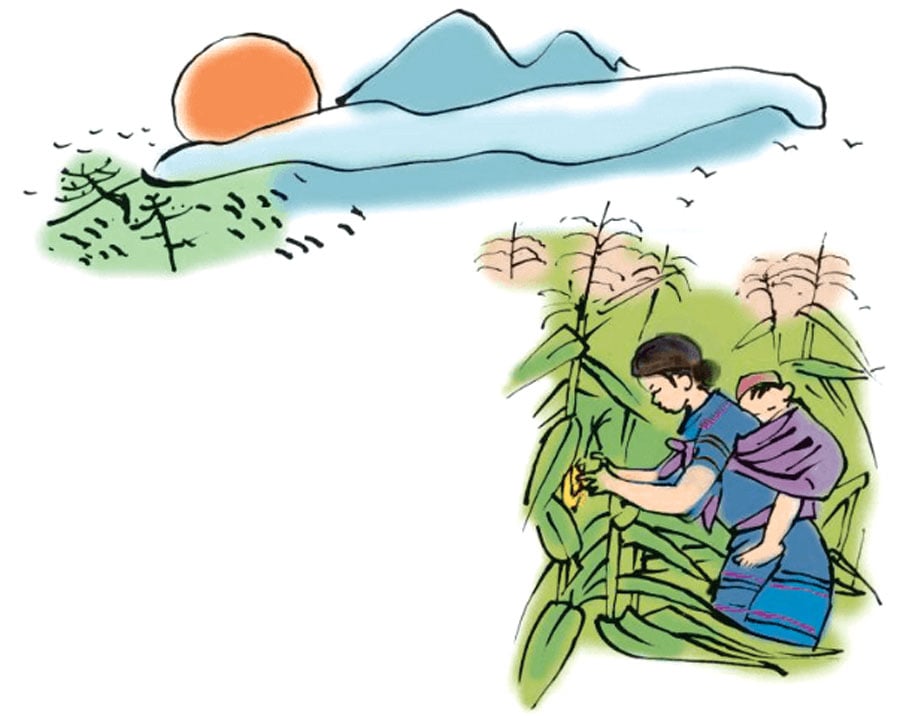
The opening verses contain the sweet, tender love of a mother for her beloved child. While carrying her child on her back, she diligently and tirelessly pounded rice to feed the soldiers. The work was hard and tiring, but the mother's heart was filled with love and hope. With simple, familiar, yet profound and thoughtful words, the author expressed the boundless love for her child, linked to the love for the soldiers, the love for the homeland and the country of a mother in the highlands during the resistance war against America. The mother did not directly hold a gun to fight, but she quietly, diligently and tirelessly worked to produce food to feed the soldiers. How simple and noble is the mother's heart and feelings.
“Little Cu Tai sleep on your mother's back/ Sleep well, don't leave your mother's back/ Mother is moving the hut, mother is going to the forest/ The Americans chased us away from the stream/ The older brother holds a gun, the older sister holds a stake/ Mother carries you on her back to save for the last battle/ From your mother's back you go to the battlefield/ From hunger and suffering you go to Truong Son/ Sleep well, my dear a kay, sleep well, my dear a kay/ Mother loves a kay, mother loves the country/ I dream of you seeing Uncle Ho/ When you grow up you will be a free person”.
The resistance war against the US became increasingly fierce; the whole village and the whole country were determined to fight the enemy. "The older brother held a gun, the older sister held a spike", the child was still young but knew how to sleep soundly on the back of the mother crossing streams and forests to fierce battlefields. The love for the child, the love for the village, the homeland, the country... was the driving force that helped the mother overcome all difficulties and hardships, contributing her small efforts to repel the invaders. In the midst of countless hardships, the mother's heart was always filled with faith and hope in the just victory of the whole nation. Always steadfast in faith and hope for a bright future, when the child grew up, he would live in peace , independence, and would be "a free person".
Through the poem "Lullaby for the children growing up on their mothers' backs", poet Nguyen Khoa Diem successfully portrayed the image of a mother with a kind heart, loving her children with a greater love - love for the army, love for her homeland and country. Silently overcoming many hardships, difficulties and hardships, the mother became the symbol of a responsible, loyal and heroic Vietnamese mother.
“Mother dug tunnels since her hair was still green/ Now her hair is gray/ Mother still digs tunnels under the range of cannons/ For many nights now, the sound of the hoe echoes through the five watches/ Our country has been at war for twenty years/ The sound of the hoe echoes through the five watches, heavy with love for the country/ Mother's tunnels are like ramparts and walls/ Protecting every step I take.” - "Our homeland is immense", poet Bui Minh Quoc.
The image of a mother digging tunnels to hide the troops from her green hair until her “hair turned white” in the poem “Our immense homeland” by poet Bui Minh Quoc shows the mother’s perseverance, endurance and tireless efforts for her homeland and country during “twenty years of war”. To hide from the enemy, the mother silently and silently dug tunnels without rest for “five watches”. How noble and precious are the mother’s actions and feelings for the soldiers and for the resistance.
“Our homeland is vast/ The enemy cannot penetrate it all/ Mother's heart is infinitely wide/ Mother hides an entire division underground/ The darkest place is the brightest place/ Where I see the strength of Vietnam/ On the bunker lid/ The American bandits swarm to attack mother/ Not a word is said/ Mother is silent before the revengeful beatings/ Mother bears many injuries/ Mother's hair turns gray and then turns grayer/ But every night/ Each hoe stroke still digs into the earth/ There are troops charging from underground/ The enemy is terrified/ All around them are battlefields/ Our homeland is vast/ Mother's heart is infinitely wide”.
Each verse brings to the reader emotion and deep admiration for the work, spirit, will and courage of the heroic Vietnamese mother. Regardless of hardship, difficulty and danger, for many years, the mother diligently and diligently worked with each hoe "drilled into the bowels of the earth". In the face of the enemy's brutal beatings and torture, the mother remained "silent". Despite her many injuries, every night the mother persisted in digging tunnels to hide the troops. Then one day, the troops rushed out from the ground, majestically "Like Thach Sanh of the twentieth century" (poem by To Huu), making the enemy terrified and terrified. "Our homeland is immense/ The mother's heart is infinitely wide" - the mother's heart is as wide as the ocean, containing so much love and silent sacrifice for the independence and freedom of the Fatherland.
The above two poems have been set to music and become songs that are known, memorized and loved by many people. The image of a Vietnamese mother, full of love and sacrifice, full of love for her homeland and country in poetry in general, and in the two poems “Lullaby for the children growing up on their mothers’ backs” by poet Nguyen Khoa Diem and “Our immense homeland” by poet Bui Minh Quoc in particular, will forever be a noble and proud symbol of Vietnamese women for future generations to learn and follow.
Pham Hien
Source: https://baohanam.com.vn/van-hoa/van-hoc-nghe-thuat/hinh-anh-nguoi-me-trong-tho-ca-chong-my-139719.html














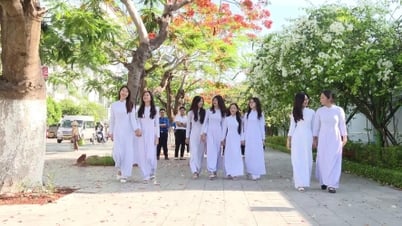











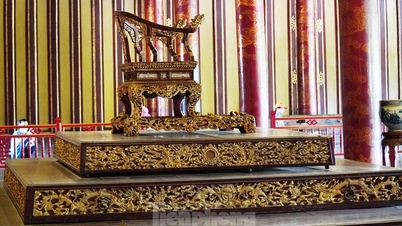























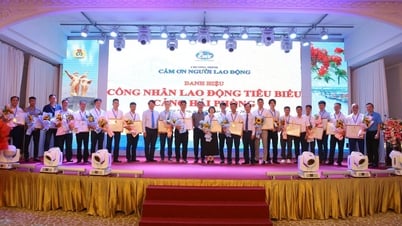


















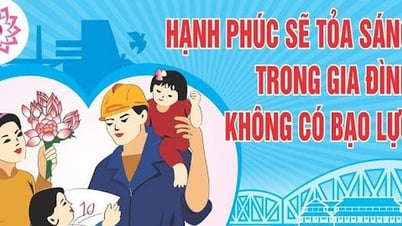
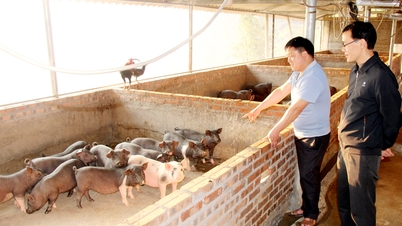

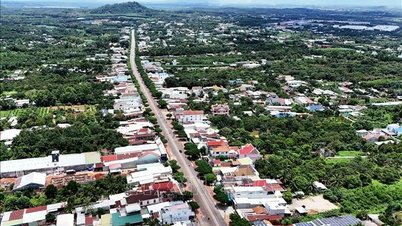

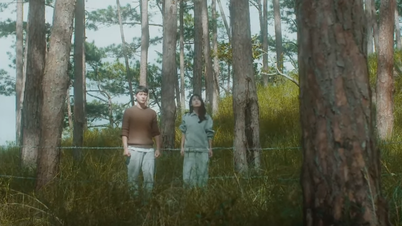

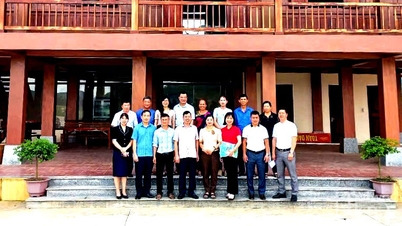

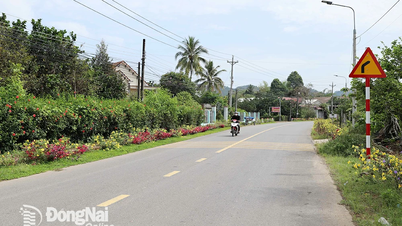


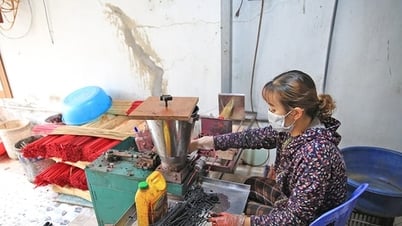








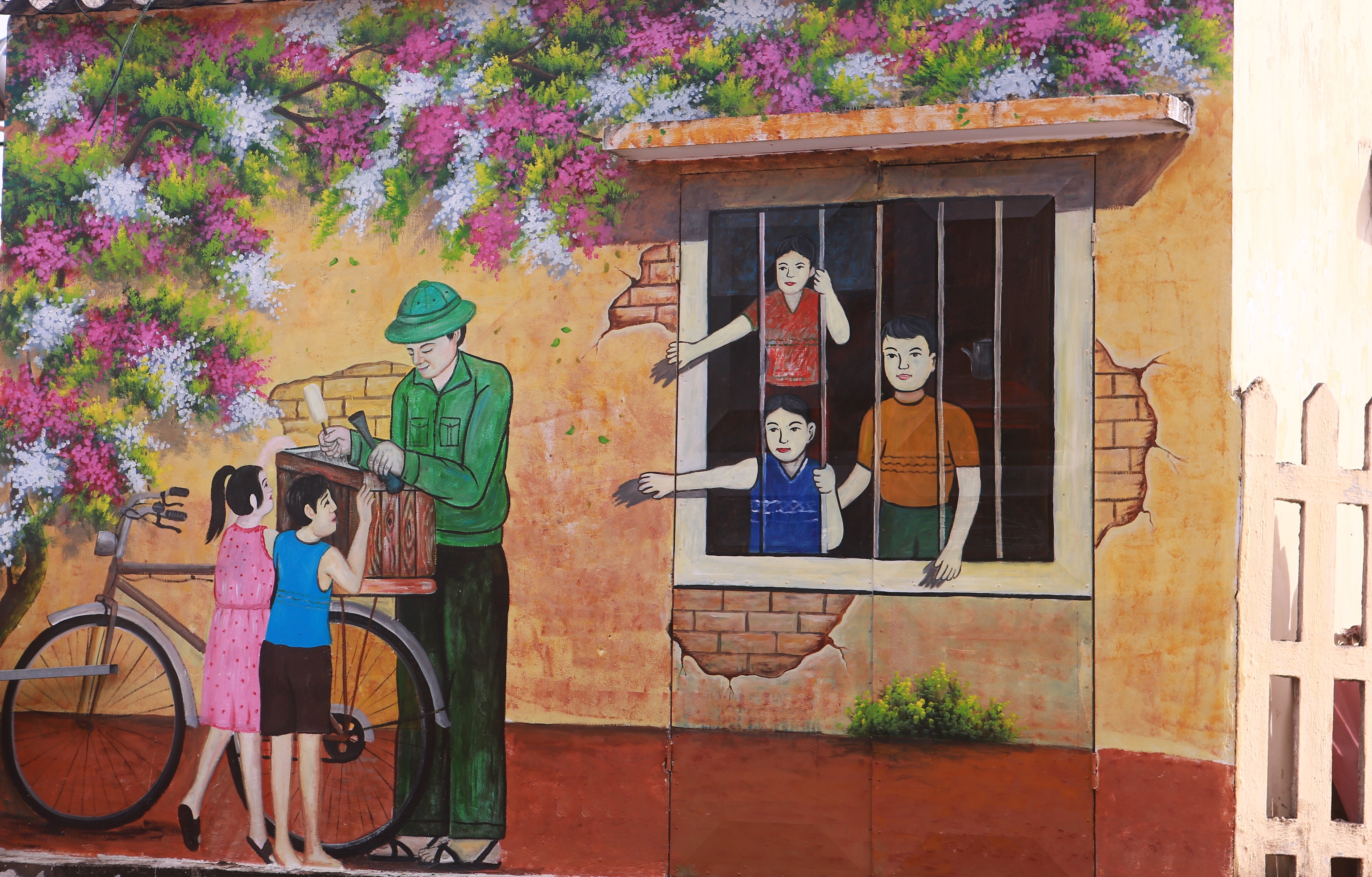



Comment (0)